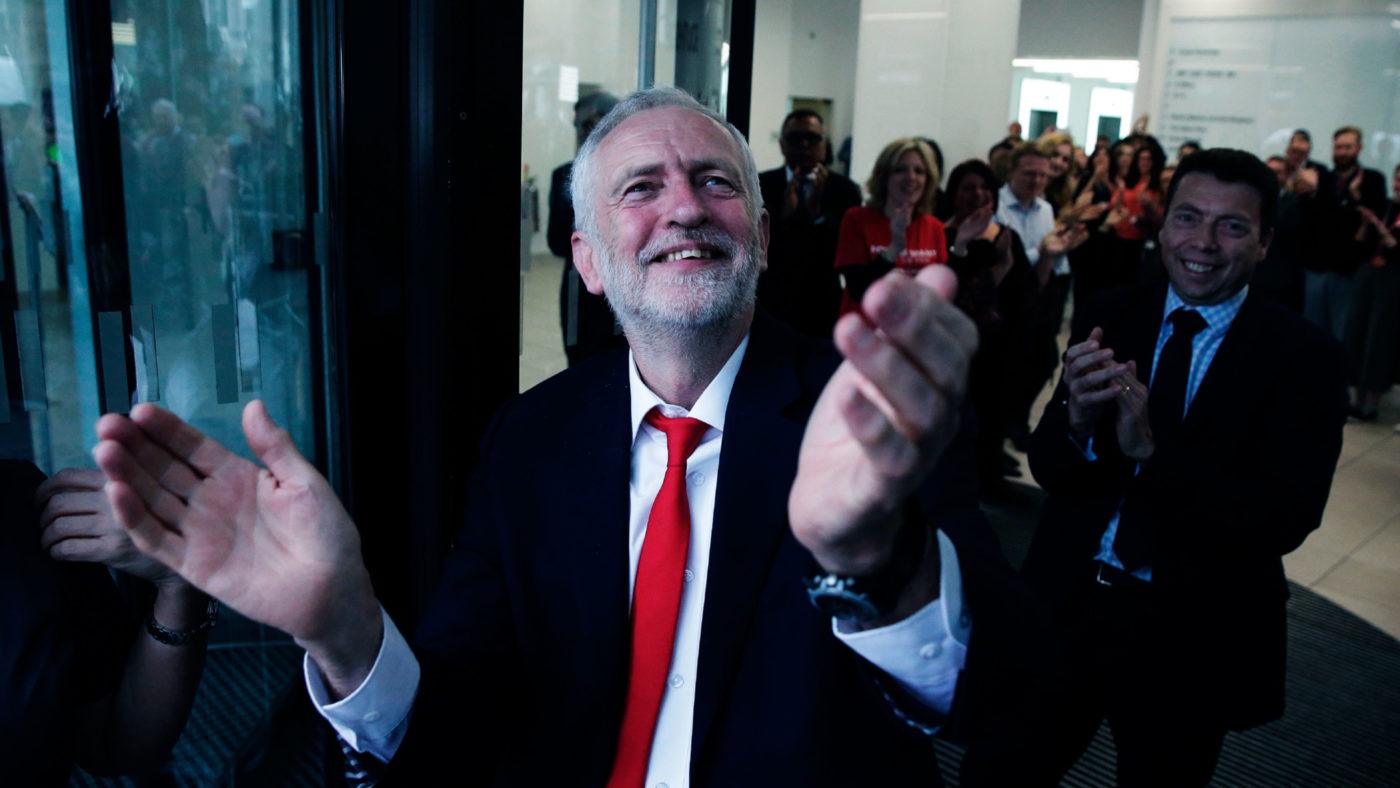Theresa May lost her election gamble and her majority, and Britain is the better for it. Unfortunately the election has simultaneously left in place three severe weaknesses in the body politic.
Offered the opportunity to confirm that they wanted a hard (or rather, dogmatic and ideological) Brexit, the voters sensibly demurred.
The election has thrown up a chance that this historic act of national self-harm may at least be mitigated by keeping us within the European single market and customs union. Unfortunately, just a chance is what it remains, for the countervailing misfortune of the election is that Labour is not going to fight for this, as the party lacks a reputable programme and – with Jeremy Corbyn’s leadership entrenched – isn’t now going to get one.
I wrote for CapX at start of the election campaign that for centre-Left voters like me there were no good electoral options. The fact that neither Mrs May nor Mr Corbyn won a majority is about as good as it gets. But the long-term prognosis for British politics remains bleak, as a historic party of the left is now lost to reason.
Political activists and the press tend to overestimate the influence of election endorsements by newspapers. Even so, the best case for a Labour vote in this election was put by the New Statesman. The magazine rightly pointed to the importance of challenging a Tory government as it proceeds to isolate Britain’s economy and erect barriers to free movement.
I argued a slightly different case here, urging not a Labour vote but support for candidates who would work to maintain Britain’s relations with Europe, including moderate Labour MPs (like my own, Meg Hillier) who’d opposed triggering Article 50.
The risk with tactical approaches to elections is that they rest on assumptions that can’t be tested in advance. I thought it likely the Tories would win and Jeremy Corbyn’s Labour would be badly bloodied. I was wrong. Labour lost its third successive election since the three-time winner Tony Blair stepped down but its share of the vote rose nearly 10 percentage points from 2015, and by more than that from the early polls.
Part of the explanation lies in the hopeless and discreditable Tory campaign. On a platform barely distinguishable from Ukip’s, they proved out of step with the mores of modern Britain. Yet Corbyn himself did what he said he would do: mobilise support from sections of the electorate, notably young people, who hadn’t previously voted. Labour’s programme evades the choices that redistributive policies (which I support) require and would lead to some highly regressive outcomes. But that very unreality reaped a tangible reward.
As I write, the British political system has escaped the baneful prospect of a majority government pursuing dogmatic Brexit, tighter immigration controls, grammar schools and – of all things – fox-hunting. But three huge impediments remain.
First is a lack of credible leadership. The Prime Minister has lost her authority yet, judging by her post-election statements, she fails to see it. Her allies and advisers need to impress upon her that – in the interests of country, party and not least herself – she should go. She became Prime Minister by the accident of appearing the least obviously unqualified candidate left standing after David Cameron’s resignation.
Like Edward Heath in February 1974, she called an election on the theme “who governs Britain?” and received the answer back “not you”. The Tories are notoriously brutal in getting rid of failing leaders but no likely successor to Mrs May will command the support of the House. A fresh election this year is possible, even likely – followed perhaps by new elections in 2019 when the EU27 refuse to give Britain the benefits it wants while not paying for them. And so it will go on.
Second, it’s in Britain’s interests that Theresa May didn’t receive endorsement for a hard Brexit yet the Opposition proposes no serious alternative. Mrs May had absolutely no mandate when declaring that Britain would leave the European single market and she didn’t get one when she tried for it.
But Labour needs to face up to reality on the European issue. Corbyn is an instinctive opponent of the EU and bears heavy responsibility for failing to campaign seriously in the referendum. Labour did itself no electoral harm by talking nonsense on Brexit –wanting the benefits of a single market that it pledges to leave- but nonsense is what it remains. Britain cannot mitigate the economic damage of Brexit unless it compromises on free movement, budgetary contributions and trade.
Third, the election has eliminated internal Labour criticism of Corbyn. Even if he’d done catastrophically, his supporters would have fought to keep him in place. Having exceeded expectations, he’s there for as long as he wants and can shape the party to his desires. And this is a very damaging outcome indeed because his politics are not sensible and not sanitary.
There’s no polite way of putting this. Labour is in the grip of people who hold the party’s values and traditions in contempt and are enemies of parliamentary democracy. When asked just a few years ago to name philosophical influences, Corbyn’s shadow chancellor cited not John Stuart Mill or John Maynard Keynes but Lenin and Trotsky.
Corbyn’s lieutenants include unabashed admirers of Soviet communism and supporters of the nightmare totalitarian state of North Korea. This is an appalling state for the British left and the quality of its input in policy debates. The temptation to live with, ally with or even follow Corbyn will seem compelling to Labour supporters. It’s a grave mistake.
Voters like me, who value Labour as a vehicle for social reform, can’t and shouldn’t accept this. The odds are not good but, to coin a phrase, the fight starts now.


